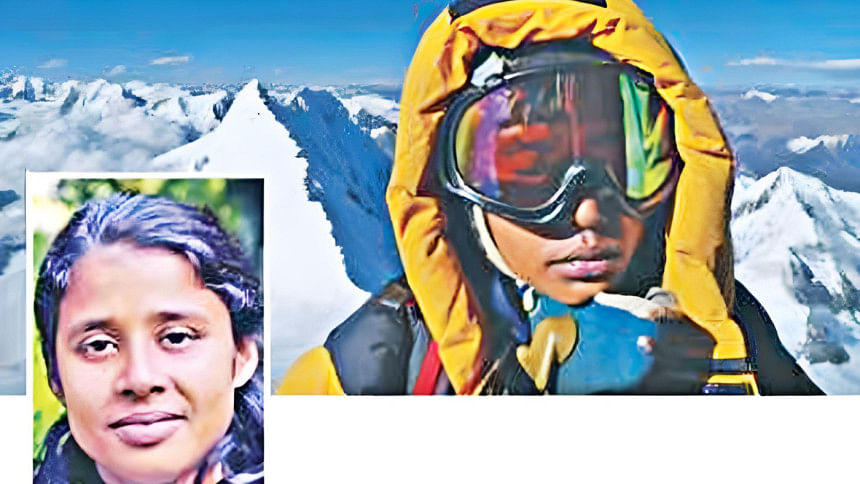Beyond the Summit: Nishat’s climb was never just about Everest

More than a decade has passed since Nishat stood atop Everest, yet the terrain for women in Bangladesh—and across South Asia—remains uneven. Representation has improved, yes. Women now run businesses, lead protests, and summit peaks. But the burden of permission, the quiet negotiations at kitchen tables, the judgment for stepping outside a norm—all still persist. In many ways, Nishat's story has only grown more relevant. Because while she proved it could be done, her journey reminds us that changing a headline doesn't change a system. Her summit was never just personal—it was a call to widen the path for those who'd come next.
In a city where dreams often dissolve into traffic jams and tradition, a woman quietly trained to climb the tallest mountain on earth. Not just Everest—the mountain of rock and ice—but a far more invisible one: expectation.
Nishat Majumdar's journey to Everest did not begin in the Himalayas. It began in Dhaka—amid cramped buses, narrow streets, and the unspoken roles assigned to women. She was a working woman with a five-day job, a dutiful daughter helping her mother at home, and a rare figure in Ramna Park at dawn. There, while the city still slept, she ran—alone, determined, and often mocked. "Look, look—flour sack is running," some would laugh. But she ran anyway.
When she told her family she wanted to climb Everest, they barely flinched. "Isn't that like going to Bandarban?" someone said. For many in Bangladesh, the concept of a woman climbing Everest didn't yet exist in the realm of possibility. It was an idea too big for the living room.
But Nishat was not looking for approval. She was looking for air. For elevation. For the freedom that a trail into the mountains offered.
Her first treks were in the hills of Bandarban. Among indigenous communities, dense forests, and silent ridges, she felt the stirrings of something that Dhaka could not offer—a different rhythm of life. She began to dream bigger. She joined HMI (Himalayan Mountaineering Institute), and when Bangladesh made its first Everest summit, she asked herself: "Why not me?"
It was not an easy question to answer. Mountaineering is expensive, especially for someone without corporate backing or inherited wealth. She pieced it together—her savings, small sponsorships, donations from the local trekking community. Each taka raised was a step closer. Each doubt from others only hardened her resolve.
She wasn't alone on the climb. Renowned climber MA Muhith was with her, returning to Everest for the second time. His guidance helped. But nothing can shield a climber from the cold. Or the fear. Or the sheer weight of what it means to attempt the roof of the world.
And she made it. On May 19, 2012, Nishat Majumdar became the first Bangladeshi woman to stand on Mount Everest's summit.
But that moment, captured in a frozen photo under prayer flags, was not the end of the journey. It was a beginning.
Back home, she received praise. Yet she also returned to a city unchanged in its expectations. She still had to work, care for her family, navigate a world where mountaineering wasn't seen as a woman's calling. But Nishat decided to carve space anyway.
She launched Trek with Nishat—a program for young women aged 18 to 25. Every year, she takes one girl on a trek. It's not Everest. But it might be the first step to someone's Everest.
This is what makes Nishat's story extraordinary. Not just the summit, but the struggle it took to even believe that the summit was possible.
She still remembers the avalanche. The moment everything turned white, soundless, slow. She still remembers the fear of dying—but even more, the fear of failing those who believed in her. "So many people were watching," she said later. "I carried their hopes."
She carried more than that. She carried the dreams of a generation of Bangladeshi girls told not to run too far, climb too high, or take up too much space.
On this Everest Day, we remember that not all summits are made of snow and ice. Some are made of silence broken, stereotypes defied, and footsteps taken into forbidden territory.
Everest did not make Nishat Majumdar extraordinary. She was already extraordinary. Everest simply gave the rest of us a chance to see it.

 For all latest news, follow The Daily Star's Google News channel.
For all latest news, follow The Daily Star's Google News channel. 



Comments